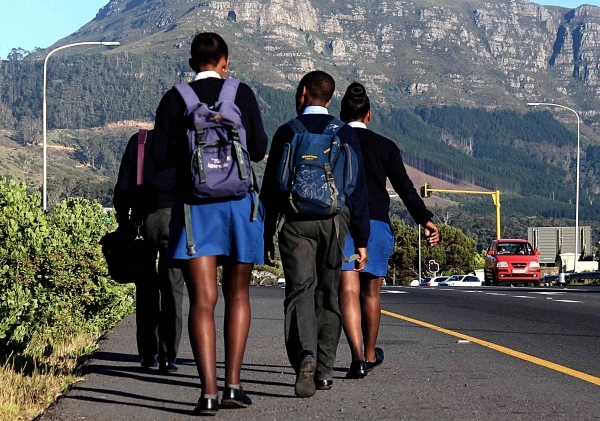

Photo by Masixole Feni.
19 March 2015
This year, Equal Education is running a campaign on School Governing Board (SGB) Elections in South African public schools. Functional, inclusive SGBs are a key component of fixing schools, writes Raphael Chaskalson.
As part of the new democratic dispensation in South Africa, policy measures were put in place after 1994 to democratise the school education system – a system which, during the apartheid years, was a key cog in intellectually dispossessing the majority black population.
The South African Schools Act (1996) aimed, amongst other things, to reform the way schools were managed during the apartheid years and build a more inclusive school governance regime. It is in this spirit that all schools became mandated to elect SGBs, an elected body of the various stakeholders in our children’s education.
SGBs are the highest decision-making body at a school. They exercise control and oversight over the allocation of school finances and a school’s disciplinary procedures. The SGB also has the power to recommend teacher appointments and to exercise oversight over a school’s administration, maintenance and educational curricula. These functions are essential to a well-functioning school. Clearly, if equipped with knowledge of their responsibilities, good leadership and adequate training, the SGB can make an enormous difference to a school’s daily running.
Furthermore, the composition of the SGB is deliberately geared towards enabling parents and learners to hold their schools to account. The SGB is comprised of the school principal, five elected teacher representatives, one elected representative of the non-academic staff, two elected learner representatives and one more parent than there are other members. Parent and learner representatives therefore form a clear majority on the SGB and have strong influence over its decisions. They have enormous power to hold their schools accountable.
Yet, in spite of progressive legislation, enormous challenges remain. Many schools struggle to get parents to attend SGB elections. When schools do not reach quorum, the election must be called again. This risks demotivating the various stakeholders involved and compromising the legitimacy of the process. Furthermore, research has shown that elected parent and learner representatives are often unaware of their powers and responsibilities, leaving the principal in de facto control of the SGB.
SGBs also face severe obstacles in terms of resources and training. Particularly in the poorer, largely rural provinces, SGBs remain severely constrained by available finances and cannot make the necessary upgrades to a school’s basic infrastructure. Moreover, once elected, SGB members are often not adequately equipped with skills in financial management and administration.
Although provincial education departments are responsible for providing this training, government-convened workshops have generally proved inadequate and, in certain instances, impossible for second or third language English speakers to understand. Although provincial education departments have occasionally brought in NGOs or universities to assist in this training, major improvements are needed to existed training workshops.
Equal Education argues that activist-driven SGBs have the potential to make a significant difference in the running of our schools. To this end, we are embarking on an SGB-election campaign this month. We will be educating parents, community members and learners and the importance of SGBs to a school’s functioning, and will make sure that our members are empowered to understand the powers and responsibilities of the SGB. We will also be canvassing parents to participate and stand in SGB elections. Lastly, we will be monitoring the training process of school governing bodies closely and will offer our assistance where required.
Many stakeholders have an interest in the education of our children. Through inclusive, participatory governance, we can work towards fixing our schools.
Chaskalson is a researcher and political education trainer at Equal Education. No inference should be made on whether the views expressed in this article reflect the editorial position of GroundUp.